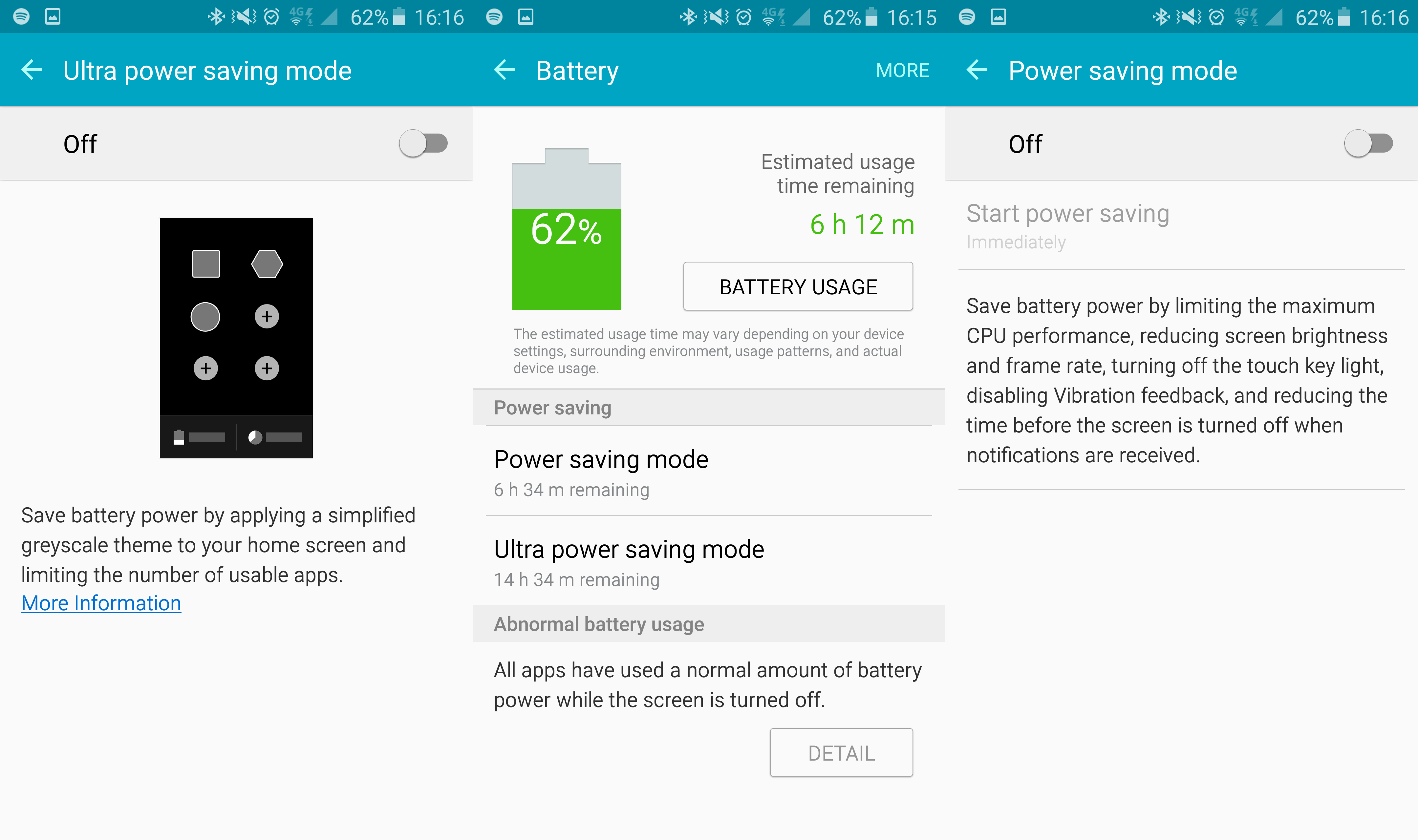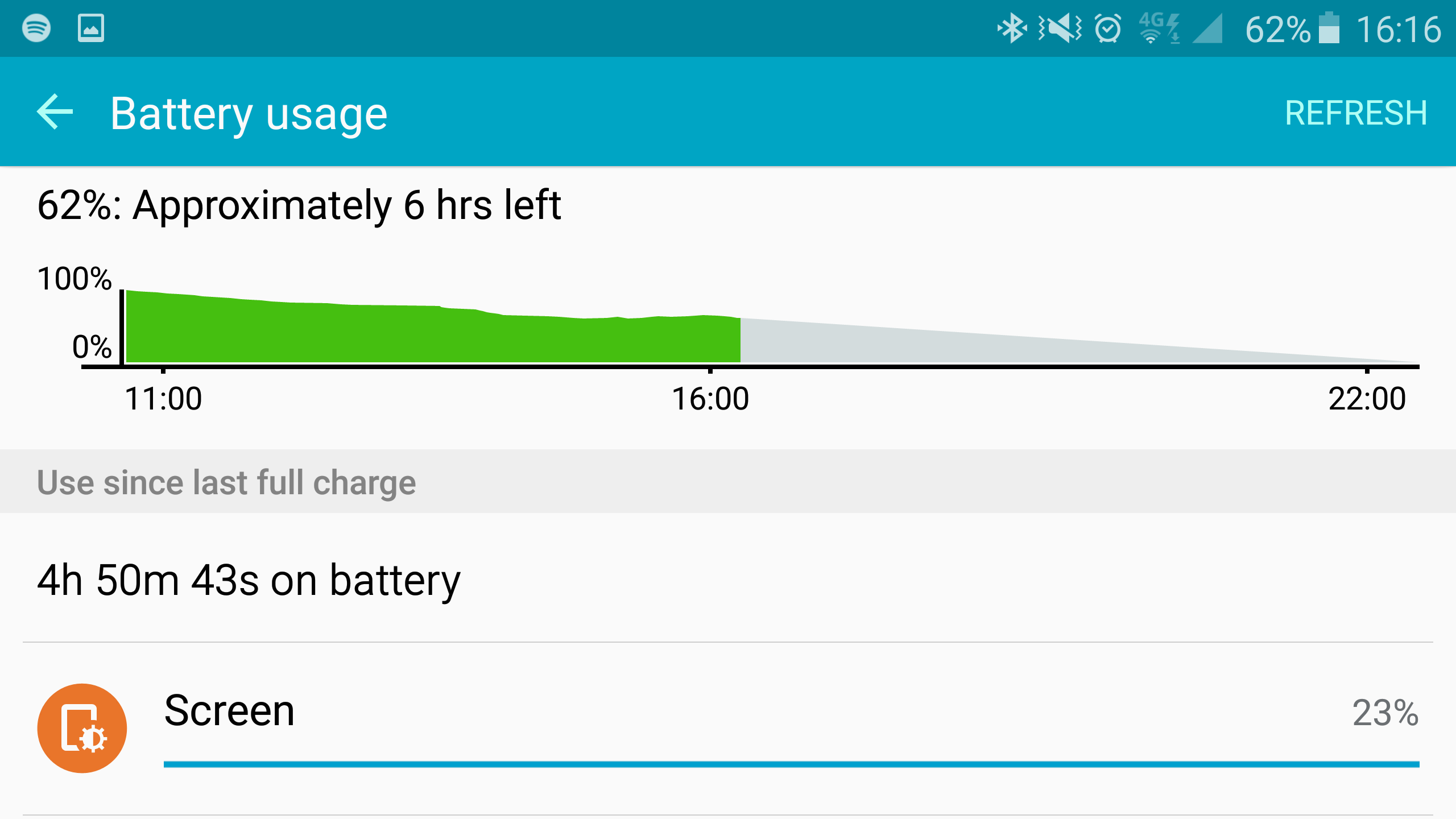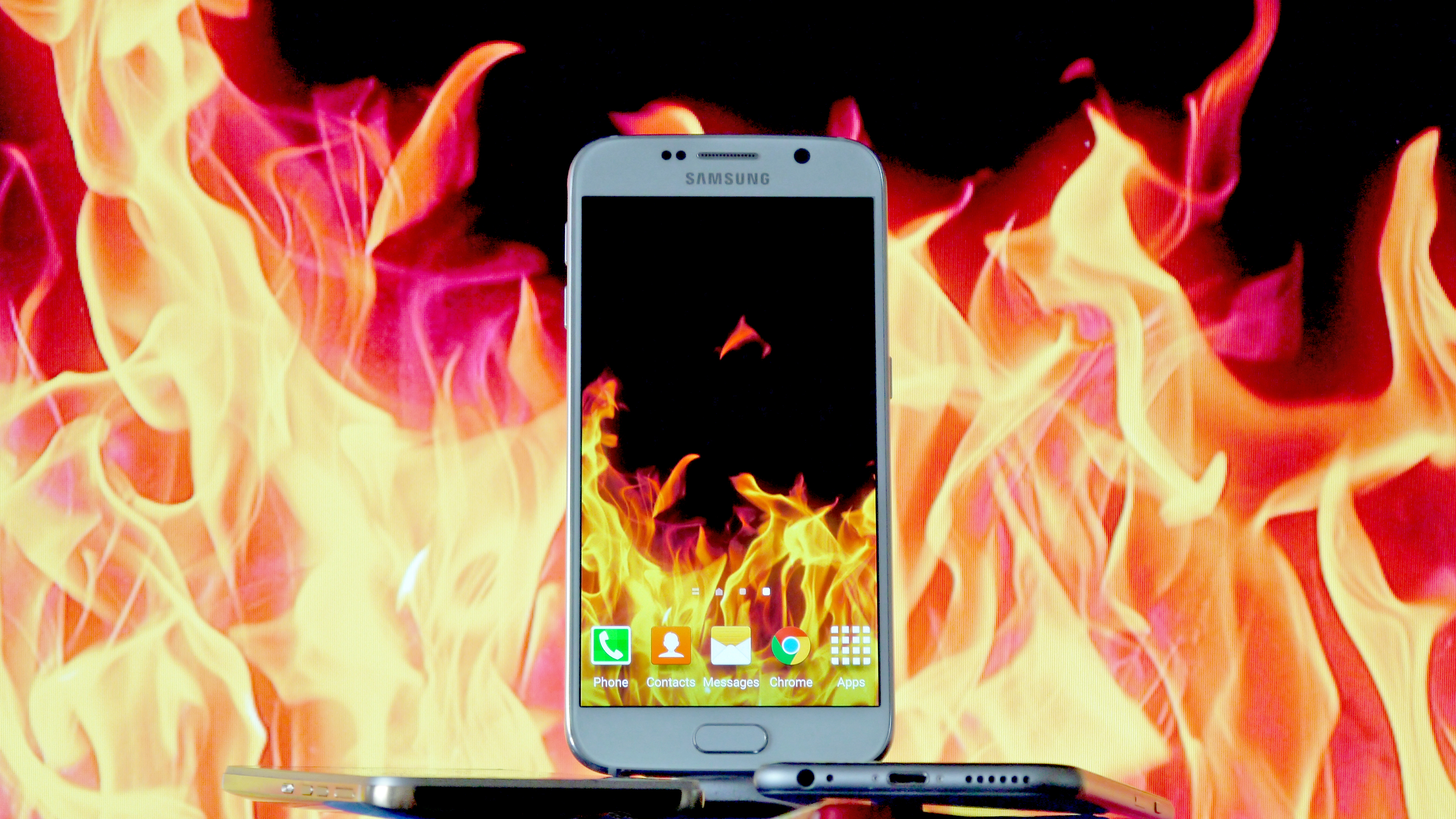Why you can trust TechRadar
Battery life on the Samsung Galaxy S6. Now we get to the real issue of this phone. It's not good enough, and that's hugely frustrating.
Let me put this into context: it's as good as the HTC One M9 and iPhone 6 in terms of being able to last just about through the day. Given that last year we were seeing phones that could easily make it to bed time without running out of juice, it's maddening that Samsung, like others, has gone backwards here.
The reason is simple: the battery pack in the new S6 is smaller than last year, 2550mAh compared to 2800mAh. The reduction is there solely so Samsung could make a slimmer phone, focusing on design over functionality. And unlike previous years, the battery can no longer be removed, taking away one of the big things fans loved about the phones.

I'm not convinced a removable battery is that important any more - I don't know many people who bother to buy an extra power pack, especially when portable packs are so widespread now - so I think the need for it is more a hygiene factor, something that makes users feel safe.
But it comes at the expense of function and design, and I think dropping it is fine. HTC, Apple, Sony and more have all done the same thing and we're not seeing widespread reports of failing units all over the world.
In terms of the actual battery life of the Samsung Galaxy S6, in moderate usage you'll get a full working day of around 17 hours out of it. This means you might have to decide whether or not you want to watch a movie on the commute home, and that's simply not good enough.
In 2015 we expect phones to be able to last more than a day easily, especially for the prices Samsung is charging for the S6. To lower the capacity beggars belief, although I do understand that the design was the most important thing this time around, given how vociferous the criticism was from smartphone buyers was.
But the two aren't mutually exclusive. You can have an efficient phone with a decent-size battery and not make it ugly... Sony did it well on the Xperia Z3, for instance.
What's more confusing is that I can't really tell what it is that's sucking the battery so quickly. The screen is the obvious culprit, and it doesn't burn a little quickly when turned on, but I'm not seeing the same drops when tested that I'd expect.

For instance, playing a 90 minute Full HD video at full brightness showed a drop of 16%, half that of the HTC One M9 which doesn't have as many pixels to power. That's a very good result.
Similarly playing a high power game for 30 minutes only saw the battery drop 10%. Yes, the phone warmed up a bit, but 5 hours' hardcore gaming on any phone is a very good result again.
Let's put it in real world context: leaving the phone overnight with a full charge saw it only drop 5%.
A 75 minute commute on train and bike, with wireless Bluetooth headphones connected to offline Spotify and a fair slug of streaming Netflix, saw me only go down to 80% by the time I reached the office. That sounds like a big drop, but apart from gaming there's not much more I could have done to push the phone hard in that time - it's a pretty good score.
So there's something in the background that's chewing the battery. Google Play services is the big issue, with the phone constantly chattering with servers and downloading updates throughout our week-long test.
This might calm down over time, and would dramatically improve the phone's battery performance, but to still be doing a week in is a bit worrying.
If only wireless charging was widespread. Then you could throw the S6 down on nearly any surface and have it sip power in the background, and if you shell out for a wireless pad or stand at home and work, you'll never have any battery problems even if you forget to plug in.
But this isn't good enough for a phone of this caliber. Samsung usually makes long lasting phones, and battery life is crucial to the needs of a consumer. Must do better.

Gareth has been part of the consumer technology world in a career spanning three decades. He started life as a staff writer on the fledgling TechRadar, and has grew with the site (primarily as phones, tablets and wearables editor) until becoming Global Editor in Chief in 2018. Gareth has written over 4,000 articles for TechRadar, has contributed expert insight to a number of other publications, chaired panels on zeitgeist technologies, presented at the Gadget Show Live as well as representing the brand on TV and radio for multiple channels including Sky, BBC, ITV and Al-Jazeera. Passionate about fitness, he can bore anyone rigid about stress management, sleep tracking, heart rate variance as well as bemoaning something about the latest iPhone, Galaxy or OLED TV.
